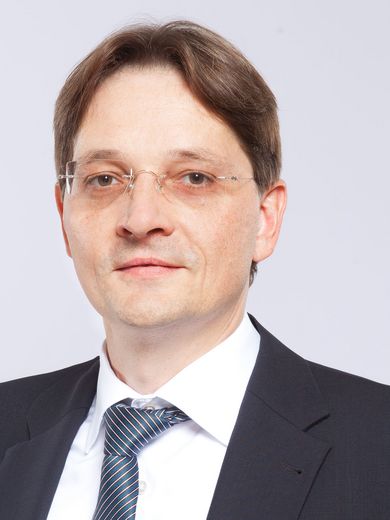
School of International Business
[Engineering+Business Administration] x Internationality = Success2 – this formula more or less sums up the International Degree Programme in Industrial Engineering and Management programme.
Such a close and practice-oriented integration of engineering and business fields is of growing importance for modern, customer-oriented and international forms of organisation. Today, work areas are designed across products, countries and functions and therefore require smooth-functioning interfaces between engineers and business experts. This is exactly where this degree programme comes in, providing you with comprehensive expertise in both areas, an understanding of the different technical languages and ways of thinking of engineers and economists, as well as the ability to communicate and lead interculturally. You will learn solid engineering and business fundamentals, interdisciplinary project and personnel management, communication techniques and intercultural skills as well as in-depth knowledge of marketing, controlling and logistics.
Special features of this degree programme at HSB are the year spent abroad (see Internationality below) and the practical relevance underscored through close cooperation with local companies, for example in the final semester.
The traditional occupational field for industrial engineers is in industry, but the demand for students with an interdisciplinary approach is also increasing in the service sector and trade.
Typical fields of employment are the processual functions of product creation and marketing such as purchasing and warehousing, production and sales/customer services, as well as cross-cutting functional areas such as organisation, human resources, data processing, logistics, business accounting/controlling and especially project management. Internationally trained industrial engineers have a double competitive advantage in the increasingly globalised world of work. Many industrial engineers reach senior positions with personnel responsibility, where technical expertise and economic judgement are just as necessary as social and leadership skills.
Graduates of the programme can be found in almost all sectors, especially in the automotive and vehicle industry, in mechanical and plant engineering, management consultancy and auditing, information technology, the electrical engineering industry and in transport and logistics. The average starting salary in Germany is around 50,000 euros per year, which is high compared to graduates of other degree programmes. According to a survey carried out by the Professional Association of German Industrial Engineers, 87 percent of companies describe the chances of advancement as very good or good. Thus, the degree programme not only offers a wide range of opportunities for career entry, but also an excellent basis for professional development.
Detailed information on the professional requirements placed on industrial engineers is available from the professional association of industrial engineers Website.
The well-balanced, partly English-language range of modules in the first four semesters in technical, economic and intercultural subject areas ensures an ideal basis for the stay abroad which is integrated into the degree programme. This one-year stay abroad, which is designed as a compulsory part, consists of a semester spent at a foreign university as well as a work placement abroad – a very special feature that gives graduates an enormous competitive advantage. Finally, the seventh semester offers the opportunity to prepare for a successful career by choosing specialisations in the fields of international marketing, logistics and international controlling.
The possibility of integrating a practice-oriented Bachelor project under field conditions with local companies in the final semester enables knowledge transfer from and into practice. At the Hochschule Bremen, many final theses in the International Degree Programme in Industrial Engineering are therefore completed in cooperation with companies from the region or at foreign locations.
The Hochschulgruppe Bremen des Berufsverbandes VWI e.V., an informal group organised by the professional association of industrial engineers, offers opportunities for interacting with professionals in practice outside the actual programme structure. Students can get involved here on a voluntary basis and gain initial experience and valuable contacts with practitioners.
The degree programme is taught by professors with professional experience and adjunct lecturers recruited from the field of practice – this also guarantees a direct connection to the field and ensures knowledge transfer.
Moreover, the Centre for International Relations and Practical Contacts (Zentrum für Internationale Beziehungen und Praxiskontakte) at the Hochschule Bremen will be happy to support students when it comes to finding a work placement – as well as companies looking for placement students or practice-oriented final theses.
„There are many mixed degree programmes that attempt the balancing act between technology and business administration. But only a few prepare students as well as HSB's International Industrial Engineering. A passion for technology coupled with international management and a year abroad – it doesn't get any better than that.“
Niklas Alexander Janetzky Graduate of the programme
Due to the increasing international networking of companies, both industrial enterprises as well as technologically oriented service providers have a need for graduates possessing international competence. Here, the degree programme makes a valuable contribution through its international orientation. The year abroad is a special feature of the degree programme, which offers graduates a considerable competitive advantage on the labour market. The year abroad can be completed at one of the many partner universities of the Hochschule Bremen around the globe or – by individual arrangement – at a freely chosen university abroad.
The stay abroad is prepared in the compulsory module for learning English as well as a number of subject-specific lessons held in English. Upon proof of already possessing the necessary English skills (level B2.2), French or Spanish can alternatively be taken as a foreign language.
Check the application deadlines and admission requirements for your desired degree programme.
Questions about the degree programme can be answered by the contact persons on the degree programme pages. If you have any further questions about your decision to study at HSB, our advisory and service institutions will be happy to help.

Prof.Dr. Martin Schwardt
Studiengangsleiter ISWI und Professur für Betriebswirtschaftslehre, insbes. Logistik
+49 421 5905 4425
Email

Stefanie Gösling
Programmkoordination
+49 421 5905 4814
Email

Rebecca Hajra
Immatrikulations- und Prüfungsamt
+49 421 5905 4302
+49 176 1514 0126
Email

